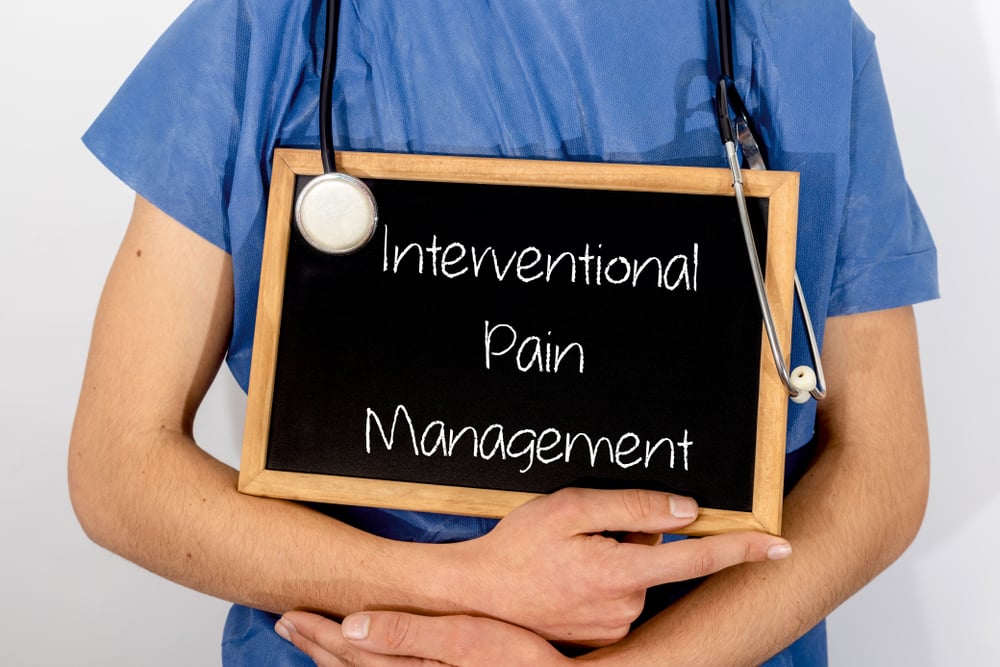Get quality pain management treatment by calling (732) 720-0247 to schedule an appointment with NJ Pain Care Specialists.
According to the CDC, 50 million U.S. adults suffer from chronic pain. If you’re one of them, you’ve likely become fatigued with conventional treatment methods that don’t address your specific needs. Interventional pain treatments offer customized techniques that work with your unique symptoms.
What is interventional pain management? What should you expect from the process? NJ Pain Care Specialists’ pain management doctor in New Jersey provides enlightening details below.
What Is Interventional Pain Management?
Interventional spine and pain management combines various treatment methods for a multidisciplinary approach to pain relief. Your primary doctor will help you assemble the following healthcare professionals:
- Mental healthcare experts
- Registered nurses
- Anesthesiologists
- Occupational and physical therapists
- Internists
Interventional Pain Management Variations
Different types of pain require varying treatment methods. Your care team may explore a diverse range of interventional pain medicine with you. They tailor these minimally or non-invasive approaches to treatment based on your diagnosis, symptoms, and how your body and mind respond.
A research paper published in the journal PAIN shows that 5% of American adults suffer from mental health symptoms alongside their chronic pain. This statistic demonstrates the importance of treating the whole patient vs. symptoms alone. Check out some common interventional practices below.
Spinal Cord Stimulation
Spinal cord stimulation involves installing electrode wires between the affected vertebrae and the spinal cord. Practitioners traditionally use it to treat acute pain in the lower back. A small energy generator inserted into the buttock emits electrical impulses to the affected area.
These impulses may relax muscles and soothe other types of soft tissue. One study found that this method offered clinically meaningful benefits to patients who underwent this procedure.
Radiofrequency Ablation
If you struggle with constant neck or upper back pain, you might respond well to radiofrequency ablation. A medical professional pushes a tiny probe into the affected soft tissues. The probe emits a radio signals that stops nerve impulses causing pain.
. This method might provide consistent relief for chronic back and neck conditions.
Nucleoplasty
Nucleoplasty involves imaging technology rendering a picture of a slipped or herniated disc. The rendered image helps doctors identify the slipped soft tissue. They use this image to guide them as they carefully remove the excess tissue, thereby relieving pressure.
The Interventional Spine and Pain Management Process
Does interventional management sound appealing to you? Discover how the process works below.
Initial Consultation and Examination
First, you’ll schedule an initial consultation with your interventional pain specialist. They will review the following materials:
- Your medical history
- Your family’s health history
- Diagnostic materials and documents related to your condition
They will also perform a thorough neurological examination.
Diagnosis
Next, you’ll undergo diagnostic testing. Even if you received a diagnosis, your doctor might want to revisit it to ensure it matches your experience. They may recommend CT scans, X-rays, MRIs, and psychological evaluations.
Planning Treatment
Finally, your doctor will have enough information to recommend a treatment regimen. They’ll work with specialists in other areas according to your needs. These specialists will curate a customized approach to treating your chronic pain. Many treatments provide long-term relief and allow for adjustments in the future.
The Advantages of Interventional Pain Management
Interventional pain treatments offer myriad benefits to patients in all walks of life, including:
- A dynamic, patient-focused approach: Many pain management practitioners provide the most convenient solution for them. Interventional specialists prioritize your concerns.
- Potent, long-lasting pain relief: Some treatments don’t offer lasting results. Interventional ones could work for years.
- Treatment options that work with your body’s signals: Every person’s body communicates and functions differently.
- Avoidance of invasive surgeries: Surgeries cause anxiety for many patients. You never know exactly how anesthesia or healing will affect you until you experience it.
Contact NJ Pain Care Specialists To Discover More Pain Management Options
Should you explore interventional pain management? Our team at NJ Pain Care Specialists can help you find out. Call (732) 720-0247 to book an appointment at a practice near you.
Our doctors accept most insurance plans, including workers’ compensation, no-fault, and PIP (personal injury protection). Same-day appointments may be available.
We can also assist with specific issues like lower back pain.
FAQS About Interventional Pain Management
What is the difference between regular pain management and interventional pain management?
The difference between regular pain management and interventional pain management is the treatment method. Traditional pain management procedures may rely more heavily on invasive procedures, while interventional methods intervene with minimal or non-invasion.
What can prevent effective pain management?
Obstacles like personal beliefs involving treatment plans and inattentive treatment specialists can prevent effective pain management. A reputable doctor will address your concerns and recommend various treatments based on your needs.
What is the objective of interventional pain management?
The objective of interventional pain management is to address chronic symptoms using holistic, non-invasive, or minimally invasive approaches to treatment.
Who is the ideal candidate for interventional treatment methods?
The ideal candidate for interventional treatment methods typically wants to avoid surgical procedures at all costs. They may also not qualify for invasive treatments due to the nature of their condition. Therefore, interventional treatment offers safe, consistent relief.


